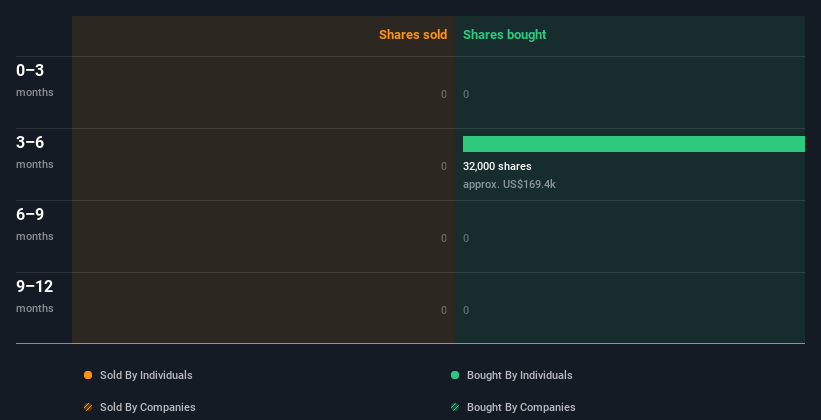Favourable Signals For BranchOut Food: Numerous Insiders Acquired Stock
Usually, when one insider buys stock, it might not be a monumental event. But when multiple insiders are buying like they did in the case of BranchOut Food Inc. (NASDAQ:BOF), that sends out a positive message to the company's shareholders.
Although we don't think shareholders should simply follow insider transactions, we do think it is perfectly logical to keep tabs on what insiders are doing.
View our latest analysis for BranchOut Food
The Last 12 Months Of Insider Transactions At BranchOut Food
Over the last year, we can see that the biggest insider purchase was by Independent Director John Dalfonsi for US$150k worth of shares, at about US$6.00 per share. That means that even when the share price was higher than US$1.39 (the recent price), an insider wanted to purchase shares. Their view may have changed since then, but at least it shows they felt optimistic at the time. We always take careful note of the price insiders pay when purchasing shares. As a general rule, we feel more positive about a stock if insiders have bought shares at above current prices, because that suggests they viewed the stock as good value, even at a higher price.
BranchOut Food insiders may have bought shares in the last year, but they didn't sell any. You can see the insider transactions (by companies and individuals) over the last year depicted in the chart below. If you click on the chart, you can see all the individual transactions, including the share price, individual, and the date!
There are always plenty of stocks that insiders are buying. So if that suits your style you could check each stock one by one or you could take a look at this free list of companies. (Hint: insiders have been buying them).
Insider Ownership
For a common shareholder, it is worth checking how many shares are held by company insiders. Usually, the higher the insider ownership, the more likely it is that insiders will be incentivised to build the company for the long term. BranchOut Food insiders own about US$1.7m worth of shares. That equates to 29% of the company. While this is a strong but not outstanding level of insider ownership, it's enough to indicate some alignment between management and smaller shareholders.
So What Does This Data Suggest About BranchOut Food Insiders?
The fact that there have been no BranchOut Food insider transactions recently certainly doesn't bother us. However, our analysis of transactions over the last year is heartening. Overall we don't see anything to make us think BranchOut Food insiders are doubting the company, and they do own shares. In addition to knowing about insider transactions going on, it's beneficial to identify the risks facing BranchOut Food. Every company has risks, and we've spotted 3 warning signs for BranchOut Food (of which 2 are concerning!) you should know about.
But note: BranchOut Food may not be the best stock to buy. So take a peek at this free list of interesting companies with high ROE and low debt.
For the purposes of this article, insiders are those individuals who report their transactions to the relevant regulatory body. We currently account for open market transactions and private dispositions of direct interests only, but not derivative transactions or indirect interests.
Have feedback on this article? Concerned about the content? Get in touch with us directly. Alternatively, email editorial-team (at) simplywallst.com.
This article by Simply Wall St is general in nature. We provide commentary based on historical data and analyst forecasts only using an unbiased methodology and our articles are not intended to be financial advice. It does not constitute a recommendation to buy or sell any stock, and does not take account of your objectives, or your financial situation. We aim to bring you long-term focused analysis driven by fundamental data. Note that our analysis may not factor in the latest price-sensitive company announcements or qualitative material. Simply Wall St has no position in any stocks mentioned.

 Yahoo Finance
Yahoo Finance 
